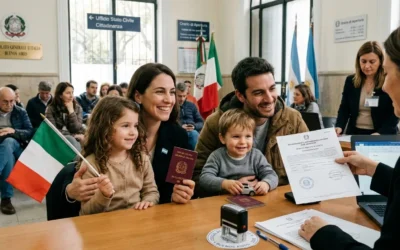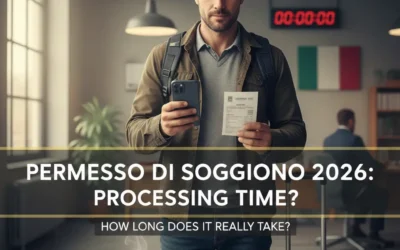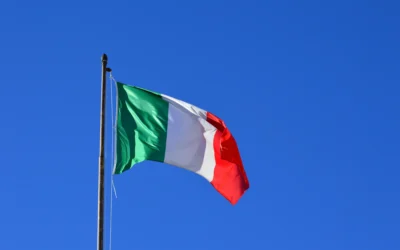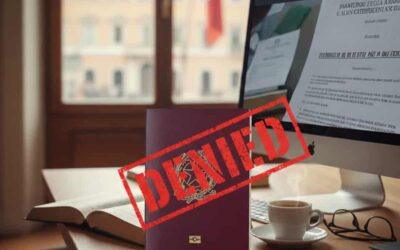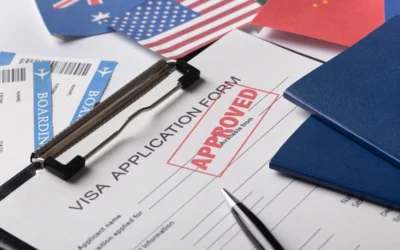Understanding the New Law 74/2025 and How It Affects You
A new legal framework introduced by Law 74/2025 (conversion of Decree-Law 36/2025) has significantly reshaped the rules on Italian citizenship for individuals born abroad. These changes are particularly relevant to those who hold dual citizenship or seek to claim Italian citizenship by descent in 2025. If you’re wondering whether you still qualify for Italian citizenship after Law 74/2025, read on for a clear breakdown.
For a practical explanation of who can still apply for Italian citiznehsip by descent read also Who can still apply for Italian Citizenship by descent after Law 74/2025
The Previous System: Citizenship by Descent (“iure sanguinis”)
Under Italian Law 91/1992, individuals born abroad to Italian ancestors were traditionally granted citizenship automatically by descent (iure sanguinis), even if they held another citizenship.
What Changed with Law 74/2025?
The introduction of Article 3-bis to Law 91/1992, through Law 74/2025, redefines the criteria. Now, recognition of Italian citizenship by descent is no longer automatic for individuals born abroad who hold another nationality, even retroactively.
Key Exceptions to the New Rule:
Italian citizenship can still be recognized if one of the following applies:
- Recognition or application was submitted before March 27, 2025, 23:59 (Rome time) – (Art. 3-bis, letter a)
- A court case was filed before that date – (Art. 3-bis, letter a-bis)
- Citizenship was judicially confirmed under previous law – (Art. 3-bis, letter b)
- Parent or grandparent held only Italian citizenship (no dual nationality) – (Art. 3-bis, letter c)
- Parent/adoptive parent resided in Italy for at least two years after becoming a citizen and before the child’s birth/adoption – (Art. 3-bis, letter d)
These exceptions are crucial for those researching how to apply for Italian citizenship in 2025 and who fear they may have lost eligibility.
Citizenship by Declaration for Minors (Article 4, paragraph 1-bis)
A significant innovation is the possibility of acquiring citizenship not by birth, but by legal entitlement. This applies to:
A minor who is a foreign national or stateless, and whose mother or father is an Italian citizen by birth, if the parents or legal guardian declare their intention for the child to acquire citizenship, and one of the following conditions is met:
a) The child resides legally and continuously in Italy for at least two years after the declaration; or
b) The declaration is made within one year from the child’s birth or within one year of the legal establishment of the parent-child relationship, including adoption.
This provision addresses common questions like: “Can my child get Italian citizenship in 2025 if I am Italian?”
Deadline for Minor Citizenship Applications
Minors who were underage as of the date the law came into effect (May 23, 2025) and whose parents fall under Art. 3-bis, letters a), a-bis) or b), may benefit from this mechanism if the declaration is submitted by May 31, 2026 (Art. 1-ter, Law 74/2025).
This is one of the most important deadlines for Italian citizenship applications in 2025 and 2026.
Option to Renounce at 18
Under Art. 4 paragraph 1-ter, minors who acquire Italian citizenship through this route may renounce it at age 18, if they hold another citizenship.
Naturalization Based on Parentage (Art. 4 revised)
Foreign or stateless persons with at least one parent or grandparent who is or was an Italian citizen by birth can acquire citizenship if:
- They perform military service for Italy and declare intent to acquire citizenship;
- They take up public employment for the Italian state and declare intent;
- Upon reaching 18, they have resided legally in Italy for at least two years and declare intent within one year.
Acquisition of Citizenship Following Parent’s Naturalization (Art. 14 law 91/92)
A minor child of a newly naturalized Italian parent can acquire citizenship if they have legally resided in Italy for at least two years at the time of the parent’s acquisition.
If the child is under two years of age, this requirement is met if the child has resided in Italy since birth.
Stricter Requirements for Legal Recognition (Art. 1, para. 2)
The new rules require that proof must be provided through official documents. Oaths and witness testimony are no longer admissible unless explicitly permitted. This increases the burden of proof for recognition of Italian citizenship abroad.
Entry and Employment Rights for Italian Descendants (Art. 27, par. 8 T.U.I.)
Foreign nationals residing abroad who are descendants of Italian citizens and are nationals of countries with a history of Italian emigration may enter and work in Italy outside immigration quotas. A forthcoming decree will specify eligible countries.
This answers many queries such as: “Can I work in Italy as a descendant of Italians in 2025?“
Fast-Track Naturalization for Italian Descendants (Art. 9, lett. a)
Another favorable change: residency requirements are reduced from 3 to 2 years for children or grandchildren of Italian citizens by birth applying for naturalization.
If you’re asking “How long do I need to live in Italy to get citizenship as a descendant?”, this law gives a faster route.
Citizenship Reacquisition (Art. 17)
Individuals who lost their Italian citizenship under Law 555/1912 and who were born in Italy or lived there for at least two consecutive years may reacquire it by declaration. This must be done between July 1, 2025 and December 31, 2027.
This applies to many Italian descendants abroad seeking to reconnect with their roots.
Final Thoughts: Who Still Qualifies?
If you had already filed or booked your application before March 27, 2025, you may still qualify. However, those born abroad holding other citizenships must now check if they meet one of the listed exceptions.


